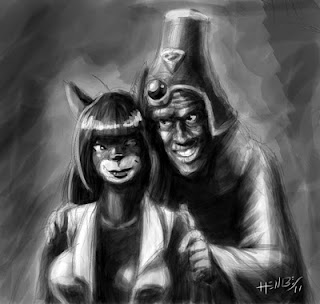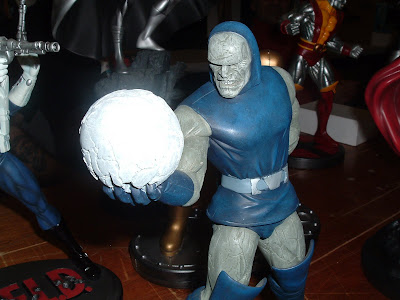"I see the two pieces of black sun". Maurice Lent and he spoke very simply, the cat. The cat has a presence that strength in depth and rejects any futility. The poem seems to always watch with the utmost seriousness. He watches over each page, keep the temperatures, s'enfort on paper. This led me to plunge into some texts celebrating the cat. The past famous poems of Baudelaire, I rediscovered this wonderful poem by Borges and I can not help transcribe here:
"A cat"
No less than stealth dawn adventurer
No less noisy than the mirror
You go and I think seeing
In the moonlight clear a panther.
For some obscure and sovereign decree
We te seek. We want strange beast
more distant than a sunset or the Ganges,
Forcing your solitude and your secret.
Your back is willing to extend my caress;
It is written in your eternity
Whether your agree chilly idleness
my hand and love worried
Your time is beyond the human scale.
Clos tone is like a dream area. 
The cat enclosure that looks for beauty and harmony, it is conducive to dreams and sometimes seems, by his deep, impenetrable eyes, the messenger of a world inaccessible to man . Their grace, their natural inclination for elegance have been leased by Lovecraft, who wrote in
"Cats and Dogs" (1926):
"While the dog gave the cat is . This text caught my attention especially for the elegance of his writing. Lovecraft, in that beautiful text, argues in favor of cats with talented poet. And it evokes
"that idol to grace immortal whose poor humans have not always recognized the qualities, this being majestic, rebellious, mysterious, voluptuous, Babylonian, detached, the eternal companion of top artists, this paragon of beauty, the brother of poetry, sweet, serious, patrician character of the cat. "
A bit condescending, Lovecraft compares to the companion dog owner and the cat tries to show the superiority of the latter in terms aesthetic and social. Lovecraft and the cat associates the gentlemen, beings to love freedom and beauty. The cat would be the companion of aristocratic beings. Lovecraft goes even further by not only establishing a link between the character of the man and the animal chosen, but asserted that prefer one or the other indicates a certain state of society. The pen of Lovecraft is fierce against dogs, too fierce, no doubt, but has probably not wrong when he says
"The dog adapts to those who prefer food and banal sentiments moral overvalued and "human-centric" rather than to worship austere and disinterested beauty, one who only likes the company of "people" and does not shy away from being the object of adoration for cutesy little we pay attention to him. (Table dog lying on the grave of his master - cf. Lanseer, Dog leading the mourning of the Old Shepherd.) What type (sic) not the kind of brain, but does what he can and is happening almost always understand what he reads in the Saddypost or the NY World; the guy who never really liked Valentino but still likes to spend an evening watching Doug Fairbank film. A good guy, constructive, not morbid a penny, civic devil, very "family" (I forgot to mention the radio). A normal guy, in short: exactly the kind of wings, which are go-getters of the best dog owners. "
The disenchantment for cats can be linked, he said, that a mediocrity of mind, itself a reflection of poor weather. recalls Lovecraft and the cult of the cat is the result of non-European civilizations or object of pagan worship. The cat becomes the emblem a life that is not subject to morality and fidelity. The cat takes an artistic life at any point in that it is beauty in every gesture.
"In times healthier than the latter, the dilettantes, amateurs, or if one prefers, the decadent yet had the opportunity to achieve something, so they were the principal architects of these glorious pagan eras. The cat is someone who performs something, not out of duty, without thinking, but for pleasure, charm, splendor, power related.
For Lovecraft the cat would, unlike the dog, away from material considerations. Opposition certainly a little easier, but attractive because it makes the cat emblem of free and this is precisely what he probably lacks the contemporary spirit. Free, that is to say the joy of being for the joy of living to live the vocation for pleasure, the substitution of love to duty.
Read :
Cats and Dogs, 23 November 1926 © Scott Meredith Literary Agency Inc.. Translated by Philip Ginder © American Editions Robert Laffont
 Sv Bell of Black Flag Pictures (with hat in photo) was the Mini Comic Con Montreal last December.
Sv Bell of Black Flag Pictures (with hat in photo) was the Mini Comic Con Montreal last December. 




















